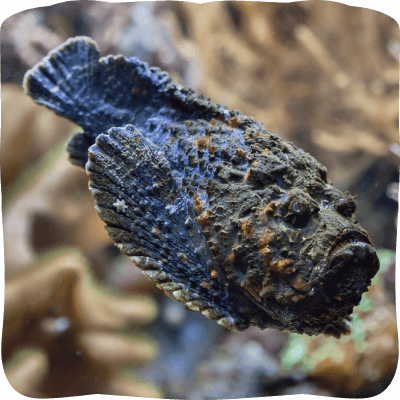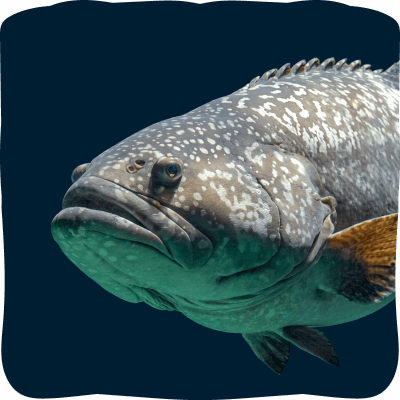This is a large species of pacu, a close relative of piranhas and silver dollars, in the serrasalmid family. It is native to the Amazon basin in tropical South America. As with a number of other closely related species, P. brachypomus is often referred to as the red-bellied pacu in reference to the appearance of the juveniles..
Meet the Animals
Red-bellied Pacu
Quick Facts
Red-bellied Pacu
Piaractus brachypomus
- How Big?
It can reach up to 88 cm (2.9 ft) in length
- Life Span
The expected life span for Piaractus brachypomus is 25 years.
- Weight
I weigh around 25 kg (55 lb).
- Eats
Feeds on fruits, seeds and nuts.
Overview
Red-bellied Pacu
Where
It is native to the Amazon basin in tropical South America, but it formerly included populations in the Orinoco, only described in 2019 as a separate species, P. orinoquensis. Additionally, it is widely farmed and has been introduced to other regions. In South Florida they are invasive in rivers, canals or lakes.
Growth
P. brachypomus can reach up to 88 cm (2.9 ft) in length and 25 kg (55 lb) in weight.
Juveniles have a distinct red chest and belly, and are easily confused with the carnivorous red-bellied piranha (Pygocentrus nattereri), but the two can be separated by their teeth, which are molar-like in Red-bellied Pacu. This similarity is believed to be mimicry by Red-bellied Pacu in an attempt to avoid predation by other species.
Off Spring
Spawning occurs at the beginning of the flood season between November and February. Larvae of the Red-bellied Pacu are found in whitewater rivers, but adults mainly live in flooded forests and floodplains of various river types, including both nutrient-rich and nutrient-poor..
Behaviour
The Red-bellied Pacu is migratory, but the pattern is poorly understood.
Feeds on
It mainly feeds on fruits, seeds and nuts, but it is opportunistic and will also take zooplankton, insects, crustaceans and small fish, especially in the dry season.
You may also like
Previous
Next







